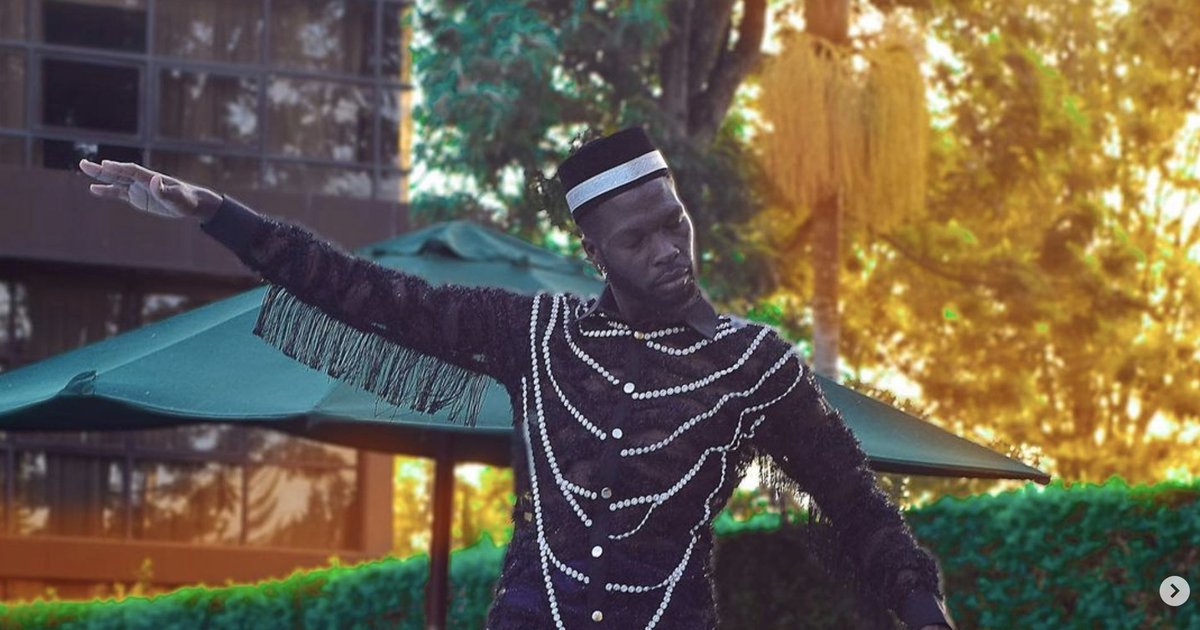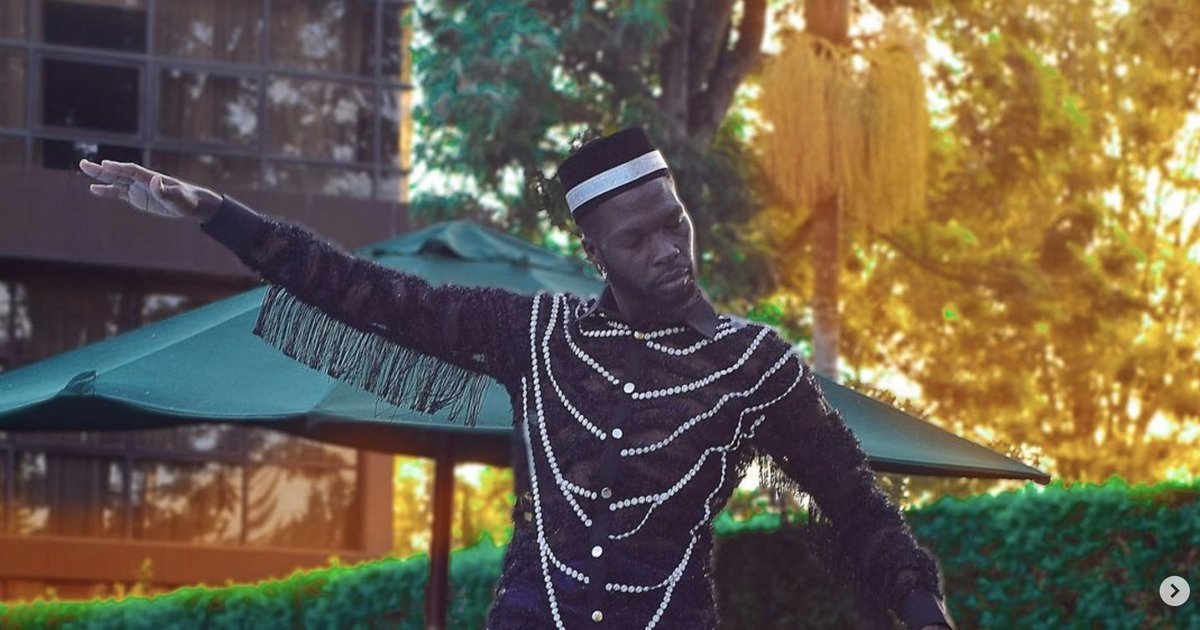
It was a Sunday afternoon in early January when congregants streamed into the Cosmopolitan Affirming Church (CAC), Nairobi’s only LGBT-inclusive church, for a service that would be different from the usual.
“As a body of faith, we cannot close our eyes to what’s happening around us,” said Caroline Omolo, one of the lead pastors of the church. “Edwin Chiloba was one of us.”
Edwin Kiprotich Chiloba, a gay rights activist, fashion designer and model, was found dead on 3 January 2023. Police said he had been strangled and his body stuffed in a metal box, before being dumped by Kipkenyo-Hurlingham road in Kenya’s Rift Valley area. Eight days later, government pathologist Johansen Oduor told journalists a post-mortem examination had found Chiloba died of asphyxia, with socks stuffed in his mouth and a piece of his jeans tied around his nose and mouth.
In the LGBTIQ community and among human rights defenders, news of Chiloba’s violent death triggered strong suspicions that it was a hate crime. A statement was released by Q-Intitiative, an LGBTIQ rights organisation based in Eldoret, the town on whose outskirts Chiloba’s body was found. It urged the Kenyan government to address “the underlying issues which contribute to inequality and heinous crimes against LGBTQ Kenyans”.
Kenya upholds a colonial-era law that makes it illegal to engage in “carnal knowledge against the order of nature”, which is interpreted to mean homosexuality. Gay sex is punishable by up to 14 years in prison. In 2019, the country’s Supreme Court ruled against a petition brought by LGBTIQ rights defenders to annul this section of the law. The court said the provision was not discriminatory as it didn’t single out LGBTIQ people, but its opponents say it fosters widespread homophobic violence and mistreatment.
The statement from Q-Initiative included the phone numbers of two therapists “for those who wanted to speak to someone following the loss”. At the CAC Sunday church service, the need to speak was thick in the air.
Omolo said she moved house within days of the news of Chiloba’s death. The pastor feared her neighbours, who often see LGBTIQ parishioners visiting her, might turn on her. “You just don’t know what such a moment can trigger,” she said.
One congregant said a comment she heard at work about Chiloba’s death had left her numb. A colleague had remarked “it was one less of an evil person on earth”.
Another man shared that he was finding it hard to scroll through social media feeds because Chiloba’s death had triggered so many hateful posts directed at the LGBTIQ community.
From the back pew, Mombo Ngua, another congregant remarked, “We are alone. We need to be there for each other.”
The police are not treating Chiloba’s murder as a homophobic hate crime. Edysson Nyale, the police commissioner of Uasin Gishu county, where the body was found, told openDemocracy it is being investigated as a criminal act “but not a gender-based issue.” Jacktone Odhiambo, a man said to be Chiloba’s lover, has been arrested and police have told openDemocracy that they regard him as the main suspect. Four other suspects have also been arrested, whom the police say may have been accomplices.
If Chiloba’s lover is charged and convicted, the murder would add to the alarming statistics of another kind of gendered violence in Kenya: domestic abuse. Most perpetrators are intimate partners; and the reported victims typically women. The country’s newspapers regularly report femicides and intersectional feminists say the focus on women victims neglects other survivors, leading to an inadequate government response to the problem.
Becky Odhiambo Mududa, programmes director of Western Kenya LBQT Feminist Forum, says Kenya’s infrastructure for dealing with gender-based violence is “exclusionary” and “heteronormative”. When LGBTIQ survivors seek help, they are not assisted, she added. “Tell the government that they are mandated to design systems that suit all Kenyans despite how they identify.”
Whoever is found guilty of Chiloba’s murder, for LGBTIQ Kenyans living in the shadow of criminalisation, it’s yet another violent and premature death. And it triggers traumatic memories of others that went before it. Last April, Sheila Lumumba, a 25-year-old non-binary lesbian was found raped and murdered in their room in central Kenya’s Nyeri county. A few weeks later, Rose Mbesa, an intersex person, had been raped and killed in Trans Nzoia county in the west of the country. In 2021, Erica Chandra, a transgender woman, was found murdered in the Westlands neighbourhood of the capital Nairobi, and Joash Mosoti, a gay man, was tortured and strangled to death by unknown attackers in his house in Mombasa, a coastal city along the Indian Ocean.
Chandra, Chiloba, Lumumba, Mbesa and Mosoti are only the cases that made the news. “Many have died, that we know,” said Ngua, the grieving congregant who attended the church service in Nairobi the Sunday after Chiloba’s death. He recounted the death by suicide of someone he knew. “He probably saw what was happening (all) around. The deaths, and I guess he just saw no point of living in such a situation. Death comes to us in different ways.”
Later that Sunday, the conversation in one of Kenya’s gay-friendly clubs in downtown Nairobi is heated. As the daylight faded and matatus whizzed commuters home, a group of friends sitting on the terrace discusses Chiloba’s murder. “These are some of the reasons why some of us will die closeted,” said a 25-year-old man.
Back at the church, right before a group hug to end the service, the pastor had said: “In all our troubles, when someone questions what kind of community we are, let it be said that we are that community who have each others back, a strong united family”.
On the terrace of that downtown bar, one of the group of drinkers, a 29-year-old woman, turned to her companions with a sobering remark: “I wonder if we did enough to protect him. I wonder if there was more we could have done to protect Sheila Lumumba and the rest.”
It is a stark reminder of the reality of the lives of LGBTIQ people in Kenya








